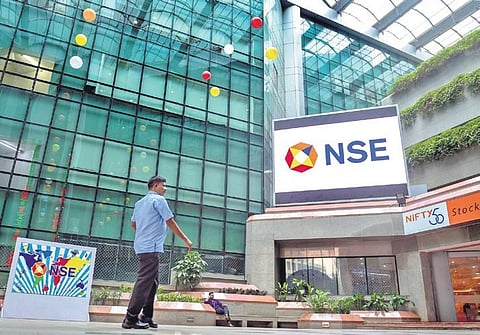

A couple of weeks ago, a functionary of a private bank came to my house to help me set up a poor person’s zero-balance account (but, then, inveigled me into settling for something flashier). In the course of things, he attempted to get me to invest in stocks. I said, absolutely never. He argued that his manager had just made ₹3 lakh over a year. I remained, to his chagrin, negatively adamant. Stupid Luddite. His spiel had sounded good, except that a few days ago, a friend, who invests a lot and diversely and wisely, told me that he had been mortified by a loss of ₹3 lakh—over two days.
It’s not that the market has been especially affected by the Adani Group fiasco in the wake of the Hindenburg éxposé. It steamed ahead even as Adani stocks took a clobbering, and it lost ground even as the Adani stocks regained territory after eight straight sessions of a hammering.
And therein lies the story of how the ordinary retail investor is a pawn in the hands of the seasoned players, the institutions, the sharks, and, yes, the state. The latter has mandated itself to guarantee the inviolability of the stock market, which is defined by unresting, comfortless volatility, as much as that of that other white whale, GDP.
Studies have shown that 95 per cent of investors, both retail and traders, lose money in the markets. 70 per cent of traders—who, by definition, know how to play the market—don’t last beyond the first year and 95 per cent stop trading by the third year.
Not only does no other capitalist institution have this level of attrition, but it would also wreck any other institution. It would, indeed, permanently ruin the very idea of it in the human mind, which is always in search of stability and serenity.
But, of course, stock markets are not about providing long-term liveable incomes to people (much less enriching them): they are about enriching corporates, investment advisers, brokers, and a tiny homuncular handful of those players who make a daily job of intraday trading.
“In the stock market,” wrote Alexander Hurst in The Guardian, “it takes money to make money. So what do you do when you don’t have very much, to begin with? You pour what little you have into overtly leveraged, rarely brilliant, sometimes inane trades that lie somewhere in between gambling and investing.”
So, in every sense, this isn’t about people — even professionals and experienced vocationers — making money. It is about the extended ability of an inequitable institution to survive the law of entropy unscathed despite a history of bad delivery to the vast majority of investors. Bourses go on, despite the high body count, mostly riding a high churn: disappointed or impoverished or just cautious investors who leave are replaced by newcomers who’ve smelt blood. Most of them, finding, in the fullness of time, their own blood spilt on the trading floor, will retreat, cannier but traumatised and much diminished. Society is crisscrossed by these wounded, the lateral moraine of an indifferent stock market juggernaut.
The stock market requires constant scrutiny through checks and balances by institutions dedicated single-mindedly to what is a formidable, toilsome task. India has several, with contiguous responsibilities. But each one failed wretchedly to warn investors of the impending disaster of the Adani Group wipeout, built on the self-evaluatory diddling of numerics and laws. It isn’t as if Indian economists and institutional stock marketers have not known for years that the Adani Group is a vastly overvalued house of cards — and that a house of cards, even one built with only Aces, will, eventually, collapse at the merest hint of a puff. The group’s gargantuan overleveraging and fantasyland overvaluation was even written about, obliquely in the mainstream media and directly on social media. But the institutions responsible for overseeing the market, which is, all over the world, inclined and habituated to duplicitous manipulation, failed — for reasons as much political as corruptional — to flag this for the benefit of the general public that is, even now, itching to break through the earnings bottleneck of the Covid times.
This was, in every sense, a disaster waiting to happen in the deliberately laxly regulated roiling sea of stocks. It was not only inevitable and ineludible but also seen to be coming in all its Titanic vastness.
And, yet, investors were hung out to dry; in the absence of a word to the wise, much less a duty-bound injunction from the regulators and market mavens, they had neither time nor opportunity to escape from the shipwreck.
Nathan Anderson, the short-seller behind the Hindenburg Research éxposé that laid low the house of Adani, knows the underbelly of the market because he makes a handsome living attacking it. He told the New Yorker last year that the market “has just become this otherworldly casino, which is disconnected from the real world”.
Although stock marketers have been known to vehemently disagree, it is hardly an unfamiliar refrain. One of the most famous cautions of the noted Panamanian American Wall Street journalist-author Edwin Lefèvre goes: “Fortunes are made and lost by thousands of men in the stock market; they are made and kept by a few dozen.” These words are most often quoted, ironically enough, by tone-deaf stockbrokers in spasms of self-congratulatory smugness—because he also wrote this: “There are many thousands of people who buy and sell stocks speculatively but the number of those who speculate profitably is small.”
And, yet, among inveterate stock players, there are defenders of the Adani Group’s diddling with the stocks and excoriators of Hindenburg galore. According to them, Hindenburg’s perfidy, and not the Adani Group’s tortiousness, is responsible for the ongoing investor meltdown.
But here’s the thing: investors are making losses not because someone pressed the panic button but because someone didn’t—and because investors ignored the plentiful microtremors presaging something seriously wrong in pursuit of fantasy riches.
Kajal Basu
Veteran journalist